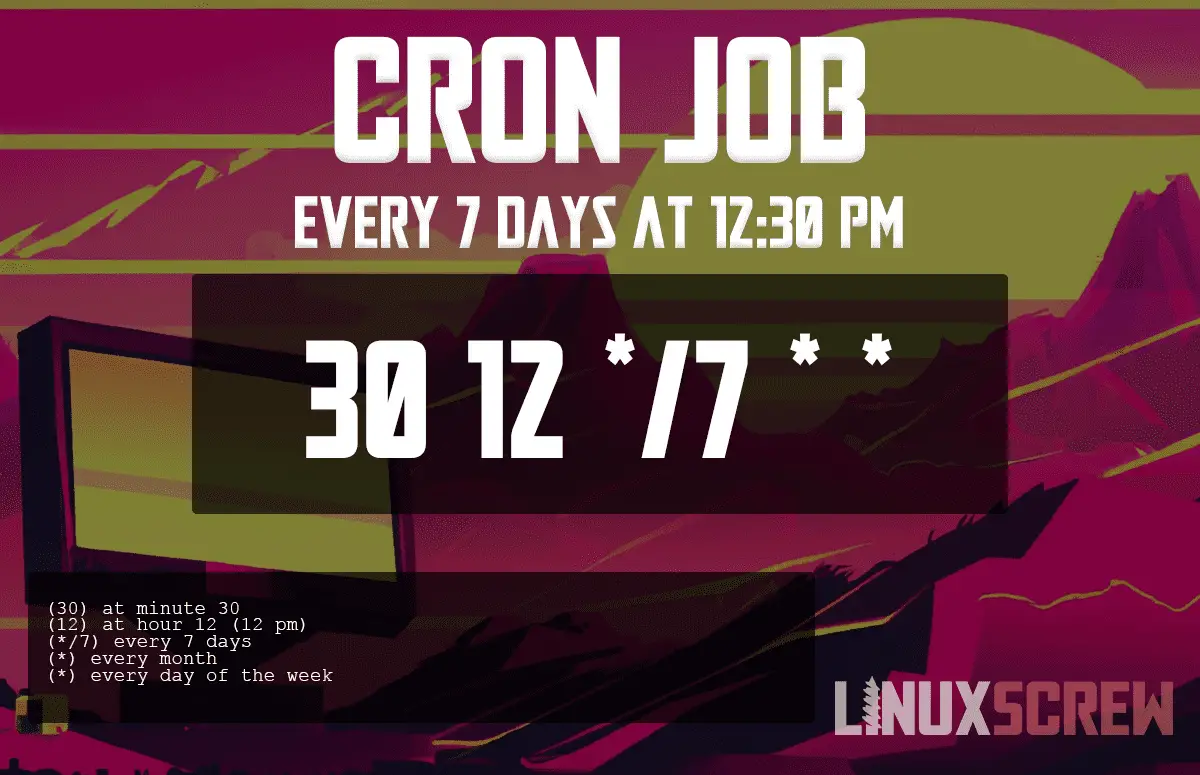This page will help you quickly and easily set up a cron job to run every 7 days at 12:30 pm.
The Cron Job/Crontab
To have your task run at this frequency, use the following cron:
30 12 */7 * *
This cron command translates to the following (in Human-Readable format):
“Every 7 days at 12:30 pm.”
What is a Cron Job & Crontab?
A cron job is a Linux utility used for scheduling the execution of commands or scripts at a specified time and date. Cron is typically used for system maintenance or administration, such as running backups or log rotation.
A crontab (also known as a “cron table”) is a file that contains a list of commands that are executed at specified times.
Cron Fields
Every cron job uses five fields. Here is an explanation of what each field does in this cron, which runs “every 7 days at 12:30 pm“:
FUN FACT: When configuring a cron job, you can specify the minute, hour, day of the month, month and day of the week when it should run – this gives you a lot of flexibility in terms of when your task will be performed automatically!.
Use Cases
You might want to set up a crontab or cron job to run every 7 days at 12:30 pm for several reasons, including:
- Sending out a weekly newsletter
- Generating a report of website activity for the past week
- Checking for updates to software dependencies and updating them if necessary
Similar Cron Jobs
You might also want to run a crontab:
- every 2 days
- every 5 days
- every 4 days
- every 10 days
- every 7 days at 4:30 am
- every 2 days at 6:30 pm
- every 2 days at 7:00 pm
FUN FACT: Cron is typically used for things like system maintenance tasks, running backups etc..
Wrapping Up
In this article, you learned how to set up a cron job that runs every 7 days at 12:30 pm. Please share this page with friends and colleagues if you find it useful.
If you have any questions, please don’t hesitate to comment below.
If you are looking for cron jobs that run at certain minutes, hours, days, weekdays, or months, or if you are looking for miscellaneous cron jobs, then check out our relevant sections, or visit our crontab cheat sheet for a list of hundreds of popular cron jobs.

